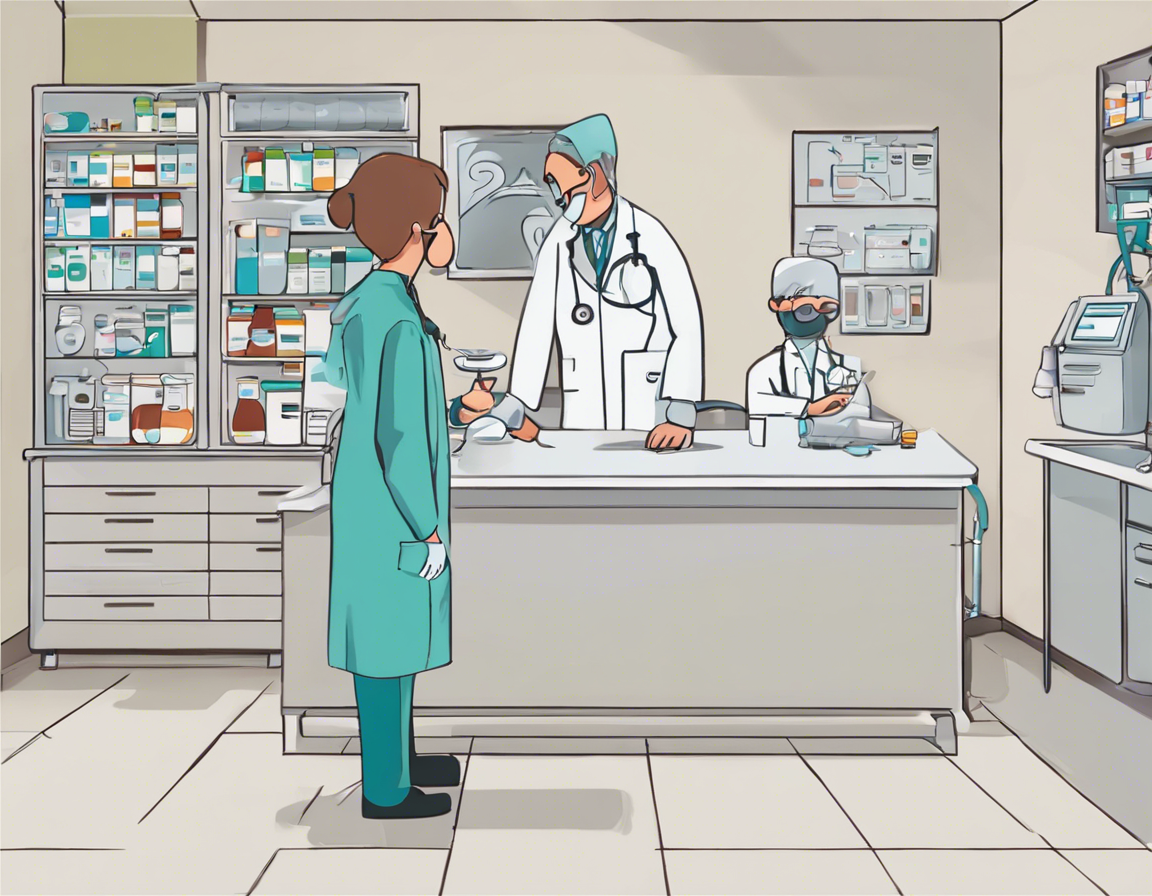Are you experiencing persistent digestive issues such as stomach pain, bloating, acid reflux, or irregular bowel movements? If so, it might be time to seek the expertise of a gastroenterologist. Gastroenterologists are medical professionals who specialize in diagnosing and treating disorders of the digestive system, including the esophagus, stomach, intestines, liver, and gallbladder. They play a crucial role in helping patients manage conditions such as Crohn’s disease, ulcerative colitis, Celiac disease, irritable bowel syndrome (IBS), and more.
If you’re looking to find a nearby gastroenterologist for your digestive health needs, here are some steps to guide you along the way:
1. Ask for Referrals:
Start by asking your primary care physician for a referral to a gastroenterologist. They can recommend trusted specialists in your area who have a good reputation for providing quality care. You can also seek recommendations from friends, family members, or colleagues who have had positive experiences with gastroenterologists.
2. Check Your Insurance Coverage:
Before scheduling an appointment, verify whether the gastroenterologist is in your insurance network. This can help you avoid unexpected out-of-pocket expenses. Most insurance providers have online tools that allow you to search for in-network gastroenterologists based on your location.
3. Research Gastroenterologists in Your Area:
Take some time to research gastroenterologists in your area. Visit their websites to learn more about their background, areas of expertise, and patient reviews. Look for board-certified gastroenterologists who have experience treating the specific digestive issues you are facing.
4. Consider Telemedicine Options:
In some cases, you may have the option to consult with a gastroenterologist virtually through telemedicine. This can be especially convenient if you have difficulty traveling to appointments or live in a remote area. Many gastroenterologists now offer telehealth services for initial consultations and follow-up visits.
5. Schedule a Consultation:
Once you have narrowed down your list of potential gastroenterologists, schedule a consultation to discuss your symptoms and concerns. This initial meeting will give you the opportunity to evaluate the doctor’s communication style, bedside manner, and overall approach to patient care. Be prepared to ask questions about their treatment philosophy and recommended diagnostic tests.
6. Consider Hospital Affiliations:
If you anticipate needing procedures such as endoscopies or colonoscopies, consider the hospital or surgical center where the gastroenterologist performs these procedures. Make sure you are comfortable with the facility and that it meets your standards for quality care and safety.
7. Seek Second Opinions if Needed:
If you are unsure about a diagnosis or treatment plan provided by a gastroenterologist, don’t hesitate to seek a second opinion. Getting another perspective can help ensure that you are making informed decisions about your digestive health.
8. Follow Up and Maintain Regular Appointments:
Once you have chosen a gastroenterologist and started treatment, make sure to follow their recommendations and attend regular follow-up appointments. Communication is key in managing digestive health conditions, so don’t hesitate to reach out to your doctor with any questions or concerns between appointments.
Frequently Asked Questions (FAQs)
-
How often should I see a gastroenterologist?
It depends on your specific condition and treatment plan. In general, patients with chronic digestive issues may need to see a gastroenterologist regularly for monitoring and management. -
What should I bring to my first appointment with a gastroenterologist?
Bring any relevant medical records, a list of current medications, insurance information, and a list of questions or symptoms you want to discuss. -
Are there lifestyle changes I can make to improve my digestive health?
Yes, maintaining a healthy diet, staying hydrated, managing stress, and getting regular exercise can all have a positive impact on your digestive health. -
What are common procedures performed by gastroenterologists?
Gastroenterologists commonly perform procedures such as endoscopies, colonoscopies, sigmoidoscopies, and liver biopsies to diagnose and treat digestive conditions. -
How do I prepare for a colonoscopy?
Your gastroenterologist will provide you with specific instructions for preparing for a colonoscopy, which typically involve fasting, taking laxatives, and cleansing your bowels before the procedure.
Finding the right gastroenterologist is an important step in taking control of your digestive health. By following these guidelines and asking the right questions, you can ensure that you receive personalized care tailored to your needs. Don’t delay seeking help if you are experiencing persistent digestive symptoms – a gastroenterologist can help you find relief and improve your quality of life.
